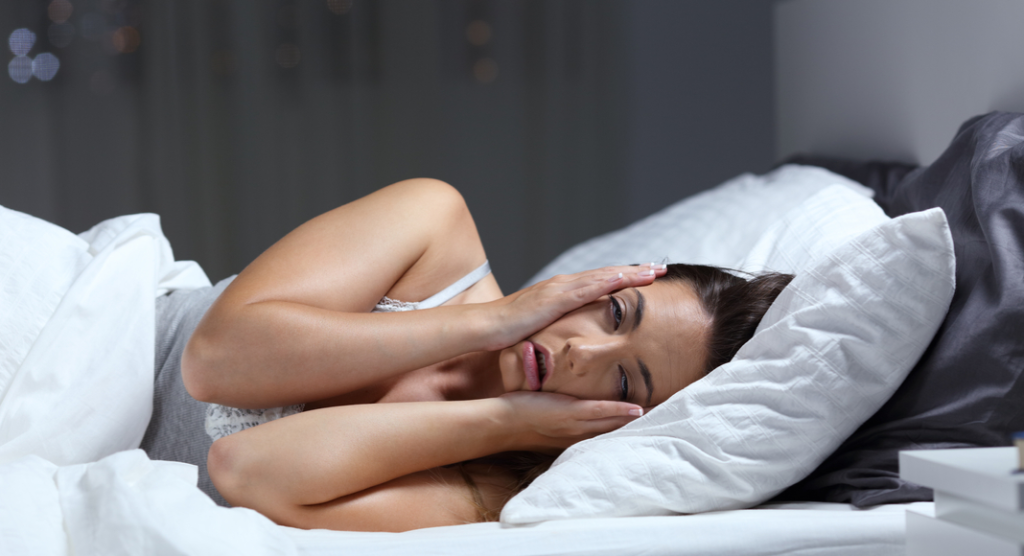
I recently read that 80 percent of our adult population reports difficulty sleeping.
80 percent!
As a psychiatrist, this number is alarming, as I am well aware of the impact that sleep deprivation has on our physical and emotional well-being. I care so strongly about this that I actually sought out training in Cognitive Behavioral Therapy for Insomnia, and now run weekly groups at my practice to help people improve their sleep.
And let me tell you, these CBT skills can be life-changing if you’re ready and willing to do the work. They are so much more impactful than popping a pill, and the effects are long-lasting, unlike a 5-hour Ambien. I’m going to outline below some of the most impactful changes you can make RIGHT NOW to improve your sleep quality.
First, the basics. I assume at this point most people know these sleep hygiene rules, but I want to review them just to be sure:
Improve your sleep hygiene
- No caffeine after 2pm.
- No screens within one hour of bedtime (preferably two if possible).
- Keep your room dark, quiet, and cool. The best ambient temperature for sleep is a chilly 68 degrees!
- No clocks in your line of sight. Checking the time can invoke significant anxiety (Oh my gosh, it’s already 2:00 AM and I STILL haven’t fallen asleep yet? Sound familiar?)
- Only use your bed for sleep and sex. No TV, no work, no checking email or social media. Do all that stuff somewhere else to create a more harmonious space in your bedroom.
Ok, now on to the more advanced advice.
Accept that sleep is a passive process.
We are not robots that can turn on and off with the flick of a switch or push of a button. It takes us time to shut down and also to reboot again in the morning. So stop trying to FORCE yourself to fall asleep; it won’t work and likely makes things worse. Use the tips below to help yourself feel as relaxed as possible at bedtime and then trust your body to take the sleep it needs each night.
Educate yourself on sleep.
Did you know that the first two stages of sleep are so light that 25-50% of people don’t even realize they are asleep? Use this knowledge to reassure yourself and reframe your thinking. Instead of thinking, I can’t believe I still haven’t fallen asleep yet, think, There’s a 50% chance I was asleep and I just didn’t know it!
Did you also know that it’s normal and natural to wake up overnight? We do so an average of 3–4 times per night. So the next time you wake up, instead of feeling frustrated, use the calming tips listed below to help yourself fall back to sleep.
Set a consistent wake-up time.
Instead of focusing on what time you go to bed, try prioritizing something you can control: what time we get up and out of bed. Try to wake up at roughly the same time every day (within an hour), even on weekends. I know this sounds painful; however, over time, your body adjusts and actually feels better with a consistent sleep schedule, and you get better sleep quality throughout the night.
Be intentional about wind down time every night.
I encourage people to pick a few calming wind-down activities they can do every night to get themselves as relaxed as possible for bed. This can be reading, listening to podcasts, sudoku, color by number, painting— whatever is soothing and distracting, but not an activity, like a page turner of a book, that will keep you up late. Do your wind down activities somewhere outside of your bed; pick a comfy chair or couch or other unique space in your house (It CAN be IN your bedroom, just NOT in your bed.), and spend some time making it extra cozy with blankets and pillows. This is your transitional space that helps you get ready for bed.
If you’re not tired, don’t get into bed.
This one sounds so practical, and yet I can’t tell you how many people get into bed when they’re not tired because they think it’s “time” to go to sleep. And then they proceed to lay there for hours. If you’re not tired, don’t get into bed. Continue doing your wind down time until you’re nodding off and really tired, and THEN get into bed.
Wind down, not Wine down.
Sorry to break it to you, but alcohol is not insomnia’s friend. In fact, drinking alcohol within four hours of bedtime can seriously impact your sleep quality, as it fragments your sleep and disrupts your much-needed deep wave sleep. So, if you are going to drink, be done four hours before you plan to fall asleep.
Have intentional worry/planning time during the day.
If you’re like me and all your worries hit you right as your head hits the pillow, then we need to find a better time to get those worries out. Establish a dedicated time each day to list all your worries and then a correlating To Do list on how you’re going to tackle each of your problems.
Happy sleeping and sweet dreams!















